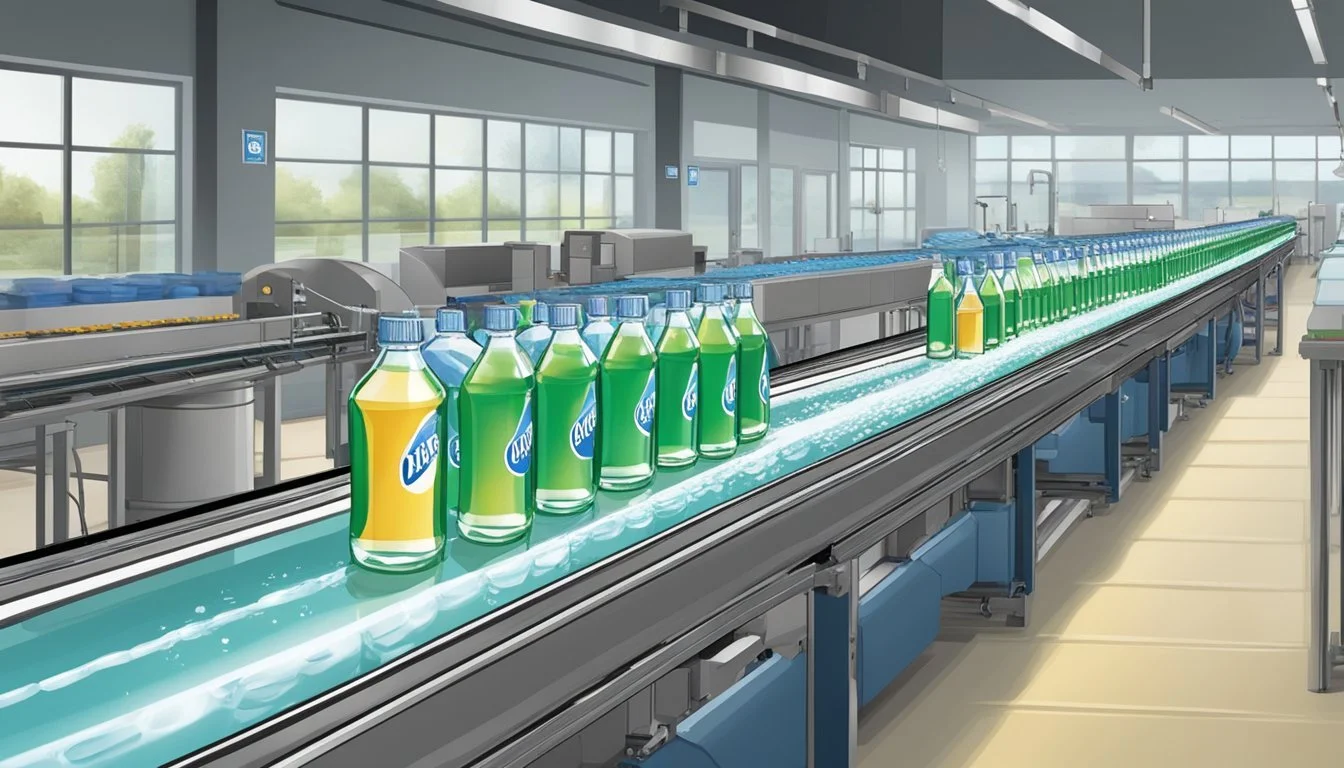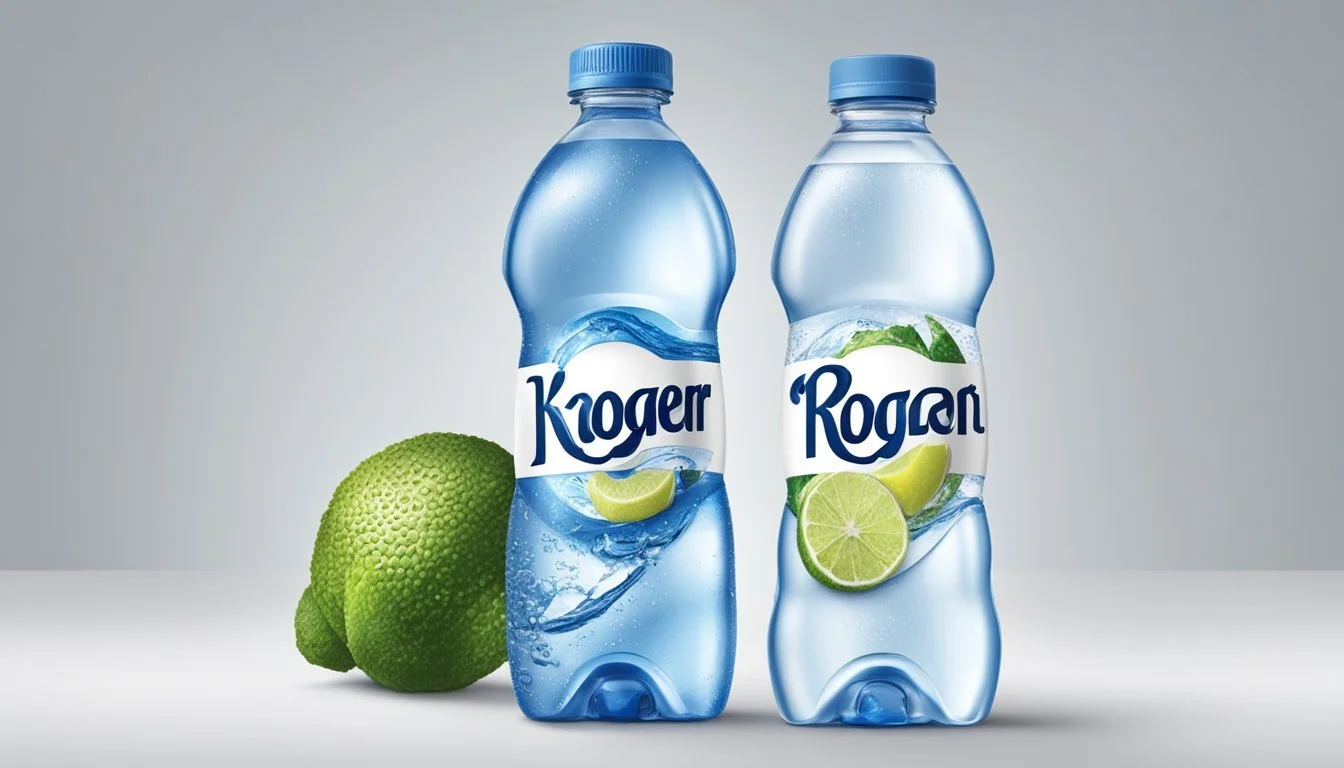Kroger vs. Dasani
Which Bottled Water is Better for You?
In the world of bottled water, consumers often find themselves debating between popular brands like Kroger and Dasani. For those seeking a balance of taste and cost, Dasani tends to be a preferred choice due to its pleasant, slightly fruity flavor and affordability. Dasani's packaging is sleek and modern, making it a convenient option for on-the-go hydration.
Kroger Purified Drinking Water, priced at around $1.00 per liter, offers a reliable and consistent experience without breaking the bank. It's a solid choice for those who prioritize practicality over brand prestige. Although it may lack the distinctive taste of Dasani, Kroger's water remains an accessible and dependable option for daily consumption.
Both brands have loyal followings and serve different consumer needs. Whether you prioritize taste or cost-effectiveness, these two bottled waters stand as prominent options on grocery store shelves.
Evaluation Criteria for Bottled Water
When assessing bottled water brands like Kroger and Dasani, it is essential to consider various criteria, including taste, hydration benefits, mineral content, pH levels, environmental impact, and consumer trust.
Taste Profile Analysis
Both taste and consumer preferences play a crucial role in selecting bottled water. Dasani is noted for its distinct mineral flavor due to added electrolytes, while Kroger offers a more neutral taste. Flavor is subjective, but a clean and refreshing taste is often preferred. Evaluating taste helps determine which brand aligns more closely with the consumer's palate.
Hydration and Health Benefits
Hydration is a primary benefit of bottled water. Both Kroger and Dasani adhere to FDA regulations, ensuring safety and quality. While the basic function of any bottled water is hydration, the presence of contaminants such as microplastics is a concern. Consumers seeking health benefits should consider factors like the absence of Bisphenol A (BPA) in packaging.
Mineral and Electrolyte Content
Minerals and electrolytes are essential for health. Dasani fortifies its water with minerals to enhance taste and provide electrolytes beneficial for hydration and energy balance. It's important to check labels for the types and amounts of added minerals compared to natural mineral content in Kroger water.
PH Levels and Water Quality
The pH level indicates the acidity or alkalinity of the water. A neutral pH of around 7 is ideal for consumers. Reverse osmosis filtration used by Dasani ensures quality but may alter pH levels. Kroger's source and filtration methods can impact pH. Higher or lower pH levels can affect the water's taste and purported health benefits.
Environmental Impact and Packaging
Environmental considerations are significant due to the impact of plastic bottles. Dasani uses PlantBottle packaging, which includes up to 30% plant-based materials and is 100% recyclable, excluding the label and cap. Kroger's environmental footprint can vary based on their packaging and recycling initiatives. Consumers looking to minimize their ecological footprint should consider the recyclability and sustainability of the packaging.
Brand Reputation and Consumer Trust
Brand reputation and trust factor heavily into consumer choices. Dasani, a Coca-Cola brand, benefits from strong market presence and brand loyalty, but past issues with taste and quality may influence perceptions. Kroger, a major grocery chain, offers convenience and affordability, winning consumer trust through widespread availability and consistent quality. Brand reliability can significantly influence long-term consumer preferences.
Manufacturing and Sourcing Standards
When comparing Kroger and Dasani bottled water, it's crucial to consider how each brand sources, filters, and purifies its water. Both companies have specific approaches that impact the final quality of their products.
Water Source and Collection
Kroger sources its bottled water from municipal tap water. They utilize a comprehensive filtration process to ensure safety and quality compliance. In contrast, Dasani also uses municipal water supplies but highlights its use of local water sources to minimize transportation environmental impact.
Nestlé Pure Life, another brand mentioned in various comparisons, sometimes uses natural spring water for its products. This demonstrates the diversity in sourcing standards among bottled water brands.
Filtration and Purification Processes
Kroger employs a series of advanced filtration techniques, including reverse osmosis and carbon filtration, to remove impurities and contaminants. This multi-step process aims to deliver pure, clean water that adheres to FDA standards.
Dasani utilizes reverse osmosis to purify its water, followed by the addition of a unique blend of minerals for taste. The reversed osmosis process effectively eliminates dissolved solids and chemical contaminants, ensuring high-quality drinking water.
Despite both companies employing reverse osmosis, the differences in their additional filtration steps and additives can significantly affect the final product.
Additives and Substance Analysis
Kroger's bottled water often contains minimal additives, focusing on providing a neutral-tasting product. They also ensure their bottles are BPA-free, reducing concerns about potential contamination from the packaging.
Dasani adds electrolytes such as magnesium sulfate and potassium chloride to enhance flavor. While providing a distinct mineral taste, these additives might not appeal to everyone.
Substance analysis of both brands indicates nearly no harmful contaminants, although trace amounts of substances like microplastics can occasionally be found, a common issue across many bottled water brands.
Overall, consumer preference might lean towards either the neutral, minimally additive approach of Kroger or the distinct taste profile provided by Dasani's electrolytes.
Market Presence and Availability
Kroger and Dasani both have a significant presence in the bottled water market, though their distribution strategies and pricing structures differ. These factors influence their accessibility and popularity among consumers.
Distribution Channels
Kroger: Known for its extensive chain of grocery stores across the United States, Kroger offers its bottled water under its own private labels. These products are readily available at over 2,700 retail locations. Moreover, Kroger utilizes its strong online presence and delivery services to further reach customers.
Dasani: As a brand owned by The Coca-Cola Company, Dasani benefits from Coca-Cola's vast distribution network. This includes convenience stores, major supermarkets, vending machines, and transportation hubs. Dasani's availability extends internationally, thanks to Coca-Cola's global footprint.
Accessibility comparison: Kroger's bottled water is primarily confined to its own stores and online platform, whereas Dasani enjoys a more widespread and varied distribution channel. This distinction makes Dasani more accessible in diverse locations compared to Kroger's private-label options.
Price Point Comparison
Kroger: Kroger's bottled water is typically more affordable, positioned as a budget-friendly option within the market. Prices are often kept lower due to the elimination of middlemen and direct sales through Kroger's retail network. Frequent promotions and loyalty programs also contribute to lower purchase costs for customers.
Dasani: Dasani, marketed as a purified water brand with added minerals for taste, falls into the mid-range price category. Given its branding under Coca-Cola and a slightly higher perceived quality, Dasani is generally priced higher than Kroger's private-label water.
Pricing dynamics: While Kroger appeals to cost-conscious consumers with lower pricing, Dasani attracts those who are willing to pay more for perceived quality and brand assurance. The price differences can influence consumer choices based on budget and brand loyalty.
Comparative Analysis of Kroger and Dasani
Kroger and Dasani bottled waters each have unique attributes that appeal to different consumers. Their differences in taste, mineral content, and packaging can significantly influence buying decisions.
Pros and Cons of Kroger Bottled Water
Kroger bottled water is known for its affordability and accessibility. Pros include a neutral pH balance, making it suitable for various diets and preferences.
The water is purified using standardized methods, ensuring consistency. However, some drinkers might find the taste to be quite plain or unremarkable compared to premium brands.
Kroger's packaging is environmentally friendly, featuring recyclable materials, which is a plus for eco-conscious consumers. Cons include the straightforward taste that may lack the "fresh" taste some users seek.
Pros and Cons of Dasani Bottled Water
Dasani offers water enhanced with a proprietary blend of minerals, aimed at improving taste. Pros include the unique, crisp taste that many find refreshing. Dasani's pH balance tends to be slightly acidic, which might appeal to those preferring a certain flavor profile.
The bottles are partially made from plant-based materials, aligning with sustainable practices. However, Dasani has faced criticism for essentially being treated tap water, impacting its reception among informed consumers.
Additionally, some people may find the mineral aftertaste off-putting. Critiques also arise from its ranking on worst-to-best lists, often placing lower than expected.
The Verdict: Which Bottled Water is Better?
Taste plays a significant role in the choice of bottled water. Dasani has a clean, crisp taste enhanced by added minerals. Kroger bottled water, while also clean, lacks the distinctive mineral blend, which could impact consumer preference.
Health and safety are paramount for consumers. Dasani uses a rigorous purification process, including reverse osmosis, ensuring a high standard of safety. Kroger's water also goes through purification but may not be as thorough, which could concern health-conscious consumers.
When considering environmentally friendly practices, both have areas to improve. Dasani, owned by Coca-Cola, has made strides in reducing plastic use and increasing recyclability. Kroger, as a major retailer, also focuses on sustainability but the specifics of their water bottle initiatives are less publicized.
Consumer preference often tilts due to brand loyalty and perception. Dasani, being a recognizable brand with a strong market presence, tends to have a higher consumer preference. Kroger, while trusted as a retailer, may not evoke the same confidence for bottled water.
Dasani Kroger Taste Clean, mineral-enhanced Clean but less distinct Health & Safety Advanced purification Standard purification Environmental Impact Efforts to reduce plastic use and increase recyclability Unknown specific initiatives Consumer Preference High due to brand recognition Moderate, linked to retailer
The bottom line depends on individual priorities. If taste and advanced purification are key, Dasani may be preferable. For those loyal to the Kroger brand, their water remains a consistent and reliable choice.
More About Kroger
Kroger vs Kirkland Signature: Which Bottled Water is Better?
Kroger vs Richard's Rainwater: Which Bottled Water is Better?
Mountain Valley Spring Water vs Kroger: Which Bottled Water is Better?
Whole Foods Italian Still Mineral water vs Kroger: Which Bottled Water is Better?




